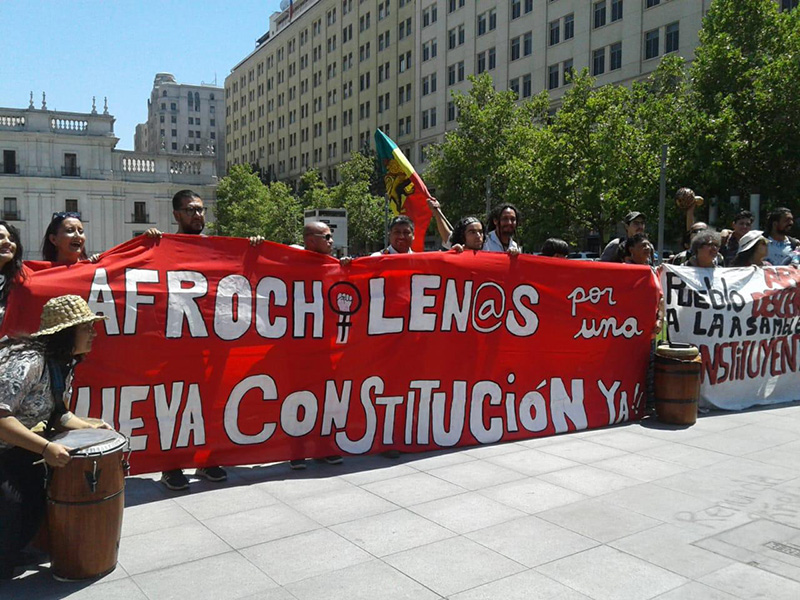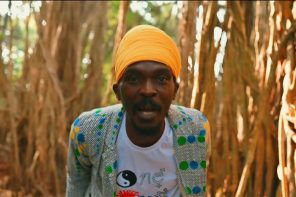The discussion for a new constitution in Chile has been one of the most important issues in recent decades, a discussion that took place after the 18 October 2019 the Chilean people would take to the streets en masse and paralyze the country for months demanding better living conditions, demanding a country where people's rights are respected and the abuses of a market system are ended, capitalist and stark neoliberal that, in the context of the social outbreak and then the global pandemic product of the Covid, has further revealed the enormous gap between those who have a lot and those who live in poverty; between those who have privileges of all kinds and those who are in line, constantly exposed to market oppression without any protection from a state that has been subjugated to private property.
In this context of high social discontent, with a generation of young people no longer afraid of constantly facing brutal repression by a police increasingly despised by the people, with a Government that in one year has been awarded all the titles of Human Rights violations in full "Democracy", is that a door was opened to change the Constitution that governs Chile since 1980, an opportunity to write the bases of a new constitution, discarding what was done during the dictatorship, the gold medal of one of the bloodiest and most extensive dictatorships in Latin America headed by Augusto Pinochet and his Military Junta, who assured a future of misery for the great majority of the country under this Constitution made to the size and measure of a few.
Last 25 October marked an important milestone in Chilean history, That Sunday was the day a National Plebiscite for a New Constitution was held where a 78% of the population that went to vote expressed their favorable position to change the current constitution, and a 79% opted for a Constitutional Convention as the mechanism to draft it, body that will be composed of 155 constituents, on an equal basis and directly elected by the citizens.
Reggae Chalice chatted with Scarleth Nijborg, Rastafarian woman trained in Social Anthropology, who referred to the historical moment lived for the plebiscite and the opportunity that opens with the change to the Constitution: "The importance lies in the opportunity for justice that was achieved in and from the streets, the current Constitution legitimizes a model of white racial supremacy and economic inequality, social and political. Promotes and strengthens the fiercest neoliberalism in direct damage to peoples and natural resources. It is detrimental to education, health, decent jobs and wages, the industry and national economy; overshadowed the rise of the peoples and working classes in Chilean society, restricting them from real advance, by virtue of favoring the power of the political and economic class of this country ”.
And I add: "for that reason, the historic opportunity for the majority of Chileans to bind the powers that dominate the country and allow us to create a just Chile, equitable and inclusive of the profuse diversity that constitutes us. Therein lies the importance, the creation of an instrument from and legitimized by the bases and, focused on social justice ".
Within the framework of the discussion on citizen participation in the constituent process, the public debate takes the need to guarantee quotas for indigenous peoples and Afro-descendants. This debate on reserved seats has been complex from the beginning, remember that a year ago, in december 2019, The National Congress dispatched to be promulgated as law the reform to the Constitution that enabled the constituent process, leaving out - in that instance- the petition that sought to incorporate gender parity, the inclusion of independents and reserved seats for indigenous peoples.
Later, in march of 2020, part of that error was amended when the Gender Parity Law was enacted, making Chile the first country to have a joint constituent body. But the seats reserved for indigenous peoples continued to be the stopping stone and the controversy of the discussion in the National Congress.. It's more, The legislative process to resolve this dilemma is still ongoing and now we are waiting for both Chambers to approve or reject the report issued by the Mixed Commission formed to resolve the differences that the discussion had in both procedures., bearing in mind that the project was approved in the Chamber of Deputies and Deputies and later rejected in the Senate. During the same debate, the Afro-descendant people were included in the proposal for reserved places.
For Scarleth Nijborg, Afro-descendant specialist, kinship and genealogy, positioning the issue of Afro-descendants in the new Magna Carta is essential.
“It is a great step -after the Law for the recognition (21.151)- towards the repair and visibility of this town. The ability to begin to repair what the "whitening" did, to be recognized, promote culture, specific public policies are included, etc. It is historical because a voice and vote is given to an invisible people, which is a fundamental part in the construction of the nation and with it you open yourself to the diversity that is also within the Afro-descendants, throughout the country. Obtaining a seat for Afro-descendants in the constituency means a victory for the entire Afro-descendant universe living together today in this territory and naturally, from that, an inclusive work should be carried out in time towards all expressions of Afro-descendants in Chile ", he explained.
But, How are Rastafari linked to the demand for a seat reserved for people of African descent?. In conversation with Reggae Chalice, Rastafari sociologist Nicolás Pozo cleared up these concerns.
“Rastafari is recognized as Afro-descendant since it is a culture and faith of life that sees life through Ethiopian glasses. Africa is the cradle of civilization, the land of origin, where our oldest fathers and mothers walked, where life developed, where spirituality was cultivated since ancient times, the arts, science and history, that was interrupted by slavery, but that doesn't start with her ", he explained.
In the same line, Nijborg added that “Rastafari, at the same time, it's a resistance movement, combative, black conscience, antiesclavista, anti-colonial that seeks equal rights and justice for all African and Afro-descendant in Africa and in the diaspora. The mystical and spiritual revelation of Rastafari, that arrived in Chile at the end of the 80's and beginning of the 90's, It comes to change the white / European / Christian / Catholic paradigm of the West, for a black African Christ returned in his character as King. A) Yes, Rastafari takes you back to the roots, It de-educates you about what official western history has told you and where it has positioned you and re-educates you, it relocates you to a truer history of the peoples and their stories ".
The sociologist Nicolás Pozo recalled that different families of the Chilean Rastafari movement have on various occasions also had to face the inequalities and injustices of the system, many of them have had to fight legal battles to defend how they exercise the way they consider their right to health and education; They have also been persecuted for the use and cultivation of Cannabis "which is seen by the Rastafari as a holy herb and mystical sacrament that accompanies daily life", he explained.
While acknowledging that Rastafari do not place their faith in Babylon (word used to name the oppressive system), considers it important that in this new process the visions of the movement are represented and their fundamental rights are protected.
With everything, Rastafarian women and men are alert to the outcome of the legislative discussion in its final stage, They joined the campaign in networks that has circulated with the hashtag # EscañoAfrochilenoYa and also took part in the debate by sending a letter to the Senate Constitution Commission prior to the bill being sent to the floor..
“The Rastafari know and value the history of the Chilean Afro-descendant movement and people, We have been working in parallel and supporting each other since the beginning of the Afro-Chilean movement. We are supporting and adding to the just cause, today on the issue of constituent seats. Following which, the 29 last October the Nyahbinghi House in Chile sent a letter, subscribing to ten Rastafarian organizations from Arica to Lanco in the Los Ríos Region, summoning the Constitution Commission, Legislation, Justice and Senate Regulations to consider the quota (s) for Afro-descendants in the seats reserved for indigenous and tribal peoples ”, Scarleth Nijborg recalled.
It is expected that this week will bring good news regarding this topic that has left behind an endless number of golden phrases., silver and bronze of the representatives of the country's politics. Undoubtedly, A new Constitution must be written by a Constituent Convention that includes indigenous peoples and also at least one representative of the Afro-descendant people.





